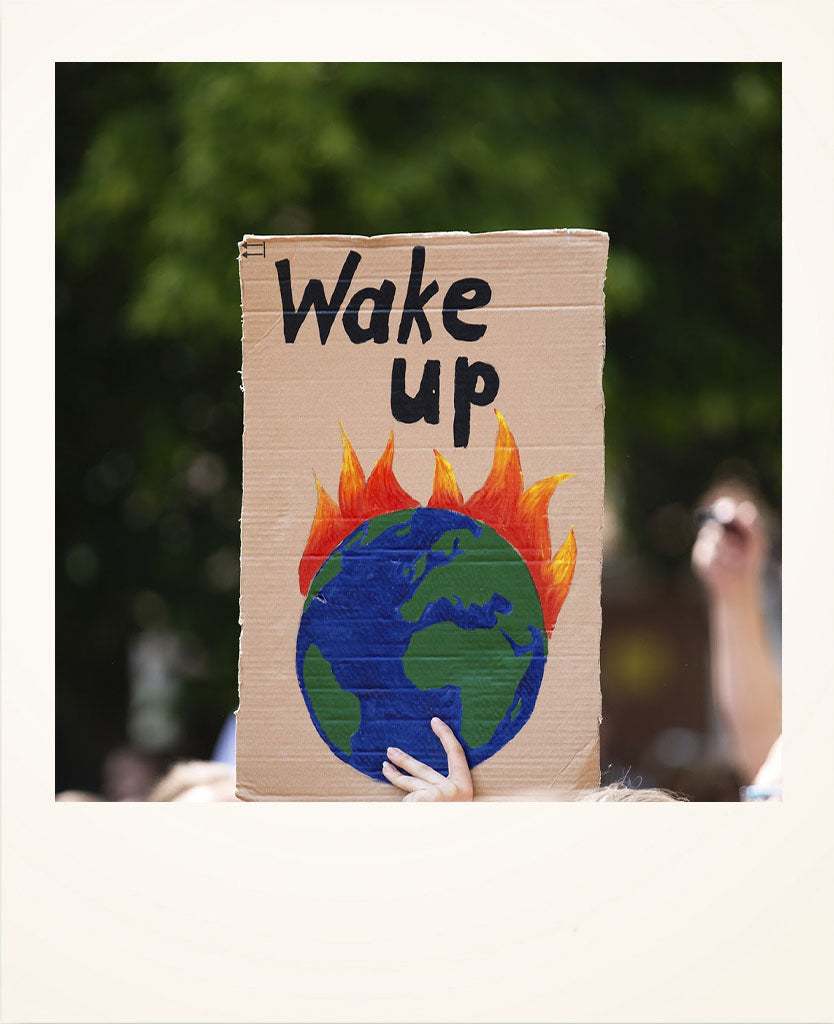Five years ago, talking about climate change was considered catastrophic. Two years ago, the hands of the Doomsday Clock, created by the Bulletin of Atomic Scientists, read 11:58 PM, just two minutes from the end, the closest the clock had ever been to midnight in its 73-year history. Today, it's 100 seconds away, and the conversation is more heated than ever (and never better said). In the short time we've been through this year, we've already experienced at least two major natural disasters: the Australian bushfires, which unfortunately continue to ravage the country, and Storm Gloria in Spain, which has destroyed much of the Levantine and Mediterranean coasts.
The climate emergency is real , and unfortunately, it has become a fixture in our lives. So much so that a new psychological condition called "eco-anxiety" has emerged relatively recently. Initially coined by a group of experts and researchers, the disorder has been described by the American Psychological Association as "a chronic fear of environmental doom." According to a recent survey, nearly three-quarters of millennials experience it to some degree after reading or hearing certain news stories.
For those of you who aren't too familiar with the term 'anxiety,' anxiety is the emotion that arises when a person feels in danger, whether real or imagined. It's a response that prepares the body to react to an emergency situation. Anxiety usually preempts situations that haven't occurred and causes the person to experience all the symptoms associated with a dangerous situation without the danger actually manifesting. The problem with ecological anxiety is that the danger is unfortunately real but not immediate , which makes the person feel extremely helpless in the face of no longer knowing the magnitude of the problem.

This is how Fernando Vallespín explains it in an article written for El País:
“ The shocking thing about ecological disasters is that they don't come straight out of the box —that is, they're 'catastrophes without an event.' Unlike a meteorite impact, a nuclear explosion, or massive volcanic eruptions, ecological devastation, however perceptible, cannot be traced back to a specific event. Does anyone know, for example, what the long-term effect of microplastics will be? We only know that somewhere in time, there will be a tipping point from which there is no turning back .”
And that's the problem. That looming tipping point that we don't know when it's going to arrive, how it's going to arrive, or if it's going to arrive at all.
Eco-anxiety can manifest itself in two ways depending on the individual: it can occur either as a result of an impending natural disaster , or, on a more global scale, it can manifest as a feeling of anxiety resulting from the constant climate changes our planet is experiencing (temperature changes, rising sea levels, etc.). The symptoms are very similar to those of other types of anxiety: stress, difficulty breathing, panic attacks, obsessive thoughts, insomnia, loss of appetite, and a long etcetera that varies from person to person. Symptoms can be mild or severe, but the important thing is to know what we can do to alleviate them . Below, we share some tips that may help you the next time you feel overwhelmed and defeated by climate change:
Don't carry the world on your back
Sometimes we read articles and articles on the internet and feel overwhelmed just by the sheer number of issues facing us. We recommend that you identify an environmental problem that is especially important to you and try to do something to improve that specific issue.
Write your worries in a notebook
Writing helps you vent and organize your thoughts. Sometimes anxiety is caused by an excess of input and information swirling senselessly around your brain. Writing helps you focus your thoughts and give them an outlet. Meditation can also help you focus on the present, ground yourself, and curb those negative thoughts that creep in.
Join community actions
Or get together with your friends to do something concrete for the environment. You can go clean beaches, parks, streets... Take bags and start picking up all the trash you see. It will help you feel like you're doing something and get out of your own head. Focusing on community issues can help you feel more in control of your surroundings.
Less reading and more breathing
It's good to be informed and aware of what's happening in the world, but overdoing it can lead to reading false information and fueling your anxiety. Sometimes we focus so much on the negative that we forget to appreciate what we have. Take a walk in the woods, plan a hike, and connect with nature. Although it may not seem like it at times, we promise it's not all bad.



